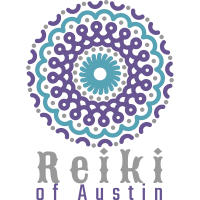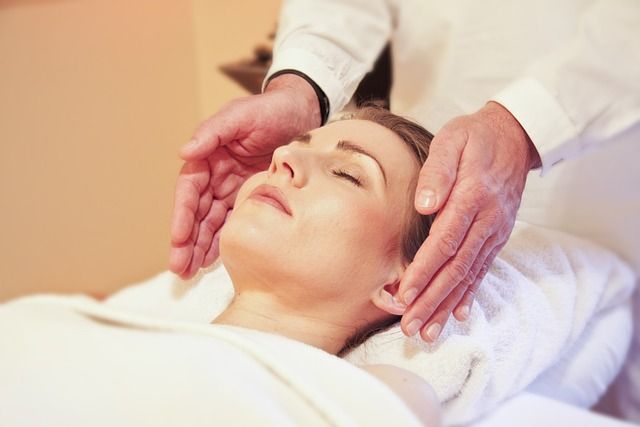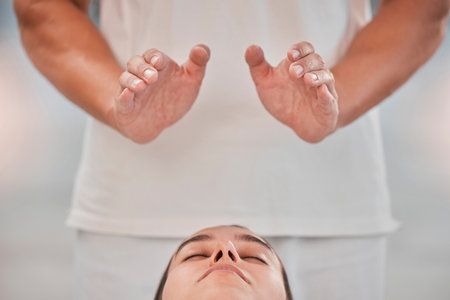The Role of Reiki Therapy in Addiction Recovery and Rehabilitation
Staying Away from Addiction Forever

Addiction is a complex and challenging condition that affects millions of individuals worldwide. Whether it's substance abuse, alcoholism, or behavioral addictions, overcoming addiction requires a comprehensive approach that addresses physical, emotional, and spiritual aspects of healing. While traditional therapies such as counseling, medication, and support groups play a crucial role in addiction recovery, complementary therapies like Reiki therapy are increasingly recognized for their potential to support individuals on their journey to sobriety and wellness.
Reiki therapy, a form of energy healing that originated in Japan, is based on the principle that a universal life force energy flows through all living beings. The word Reiki itself translates to "universal life energy," with "rei" representing universal and "ki" representing life force energy. Reiki practitioners believe that when this energy becomes disrupted or depleted, it can lead to physical, emotional, and spiritual imbalances, including addiction.
In addiction recovery and rehabilitation settings, Reiki therapy can complement traditional treatment approaches by promoting relaxation, reducing stress, and supporting overall well-being. Here, we'll explore the role of Reiki therapy in addiction recovery, its potential benefits, and how it can be integrated into holistic treatment programs.
Understanding Addiction and Recovery
Addiction is a chronic brain disorder characterized by compulsive drug seeking and use despite harmful consequences. It affects the brain's reward circuitry, leading to intense cravings, compulsive behavior, and a loss of control over substance use. Addiction is often accompanied by physical dependence, tolerance, and withdrawal symptoms when the substance is not used.
Recovery from addiction is a multifaceted process that involves addressing the underlying causes of addiction, developing coping strategies, and rebuilding a fulfilling life free from substance abuse. While detoxification and rehabilitation programs focus on addressing the physical aspects of addiction, recovery also requires addressing psychological, emotional, and spiritual factors that contribute to addictive behaviors.
The Role of Reiki Therapy in Addiction Recovery
Reiki therapy is increasingly recognized as a valuable adjunctive therapy in addiction recovery and rehabilitation programs. Its gentle, non-invasive nature makes it suitable for individuals at various stages of recovery, including those in detoxification, rehabilitation, and long-term sobriety maintenance. Here are some ways in which Reiki therapy can support addiction recovery:
1. Stress Reduction: Addiction often co-occurs with high levels of stress, anxiety, and emotional turmoil. Reiki therapy promotes deep relaxation and stress reduction by calming the nervous system and releasing tension held in the body. This can help individuals manage cravings, triggers, and withdrawal symptoms more effectively.
2. Emotional Healing: Many individuals turn to substance abuse as a way to cope with unresolved emotional pain, trauma, or negative emotions. Reiki therapy works on an energetic level to address emotional blockages, trauma, and imbalances, promoting emotional healing and inner peace. By releasing pent-up emotions and promoting self-awareness, Reiki therapy can support individuals in addressing the root causes of their addiction.
3. Self-awareness and Mindfulness: Reiki therapy encourages individuals to cultivate self-awareness, mindfulness, and presence in the moment. Through gentle touch and focused intention, individuals learn to connect with their inner selves, observe their thoughts and emotions without judgment, and develop greater clarity and insight into their addictive patterns. This increased self-awareness can empower individuals to make healthier choices and break free from destructive habits.
Potential Benefits of Reiki Therapy in Addiction Recovery
Research on the efficacy of Reiki therapy in addiction recovery is still emerging, but anecdotal evidence and preliminary studies suggest several potential benefits:
1. Reduced Cravings and Withdrawal Symptoms: Reiki therapy has been reported to help reduce cravings and withdrawal symptoms associated with substance abuse, making it easier for individuals to abstain from drugs or alcohol.
2. Improved Emotional Regulation: By promoting emotional healing and self-awareness, Reiki therapy can help individuals better regulate their emotions, cope with stress, and manage triggers that may lead to relapse.
3. Enhanced Relaxation and Sleep Quality: Reiki therapy induces a state of deep relaxation, which can improve sleep quality and promote overall well-being. Better sleep can contribute to better mood, cognition, and resilience in addiction recovery.
4. Increased Self-awareness and Mindfulness: Reiki therapy cultivates self-awareness, mindfulness, and presence in the moment, empowering individuals to observe their thoughts and behaviors without judgment and make conscious choices aligned with their values and goals.
Integrating Reiki Therapy into Addiction Recovery Programs
Integrating Reiki therapy into addiction recovery programs requires a collaborative and multidisciplinary approach that addresses the unique needs and preferences of each individual. Here are some considerations for integrating Reiki therapy into addiction recovery programs:
1. Individual Assessment: Conduct a comprehensive assessment of each individual's physical, emotional, and spiritual needs, as well as their readiness and willingness to participate in Reiki therapy.
2. Collaboration with Healthcare Providers: Collaborate with healthcare providers, addiction counselors, and other members of the treatment team to ensure that Reiki therapy complements existing treatment modalities and addresses the individual's holistic needs.
3. Informed Consent: Obtain informed consent from individuals before initiating Reiki therapy, explaining the principles, benefits, and potential risks associated with this complementary therapy.
4. Tailored Treatment Plans: Develop individualized treatment plans that incorporate Reiki therapy along with other evidence-based therapies and interventions tailored to the individual's unique needs and goals.
5. Safe and Supportive Environment: Create a safe, supportive, and nurturing environment for Reiki therapy sessions, ensuring privacy, comfort, and confidentiality for individuals receiving treatment.
6. Ongoing Evaluation and Monitoring: Continuously evaluate and monitor the individual's progress and response to Reiki therapy, adjusting treatment plans as needed to optimize outcomes and support long-term recovery.
Reiki therapy offers a holistic approach to addiction recovery that addresses the physical, emotional, and spiritual aspects of healing. By promoting relaxation, reducing stress, supporting emotional healing, and enhancing self-awareness, Reiki therapy can complement traditional addiction treatment modalities and support individuals on their journey to sobriety and wellness. As part of a comprehensive treatment program, Reiki therapy has the potential to empower individuals, promote resilience, and cultivate a deeper sense of connection, purpose, and fulfillment in recovery from addiction.









